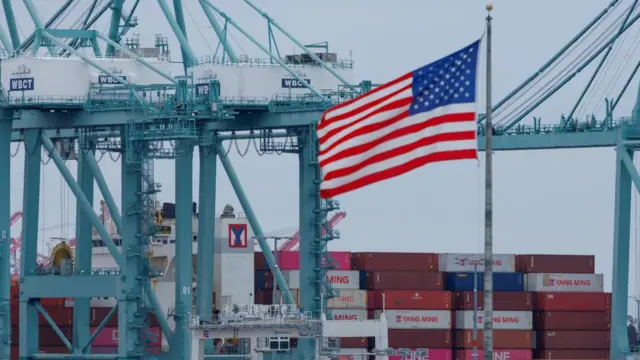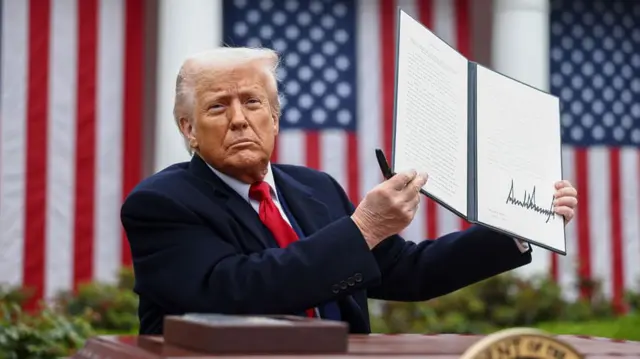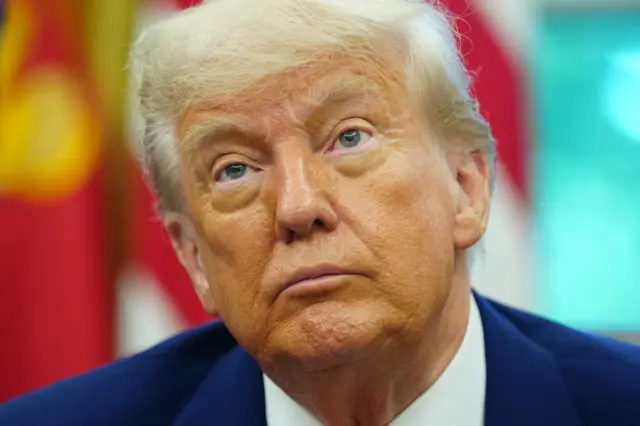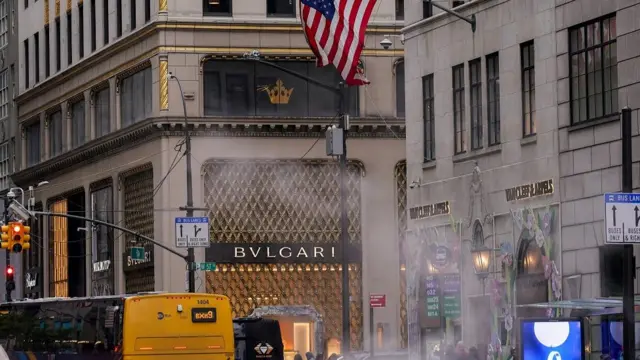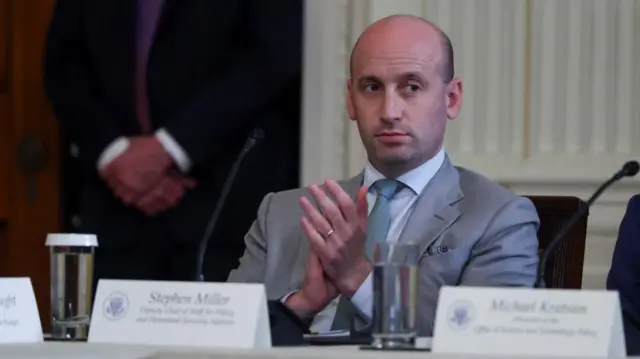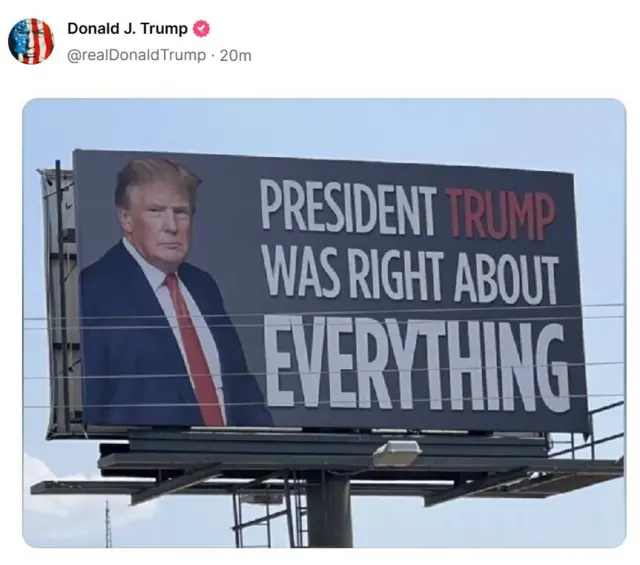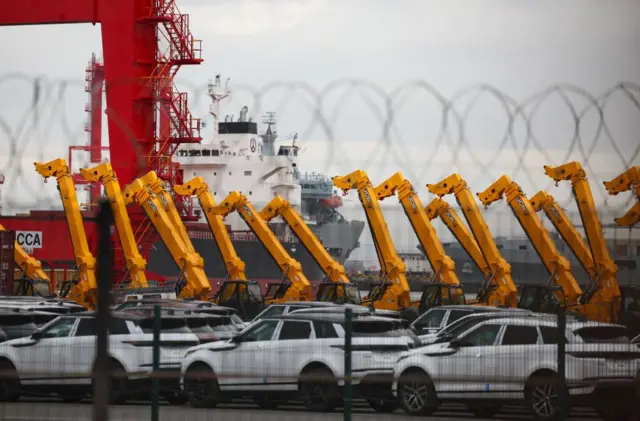
UK government keeping its head down on tariff dramapublished at 08:40 BST 29 May
Joe Pike
Political & investigations correspondent
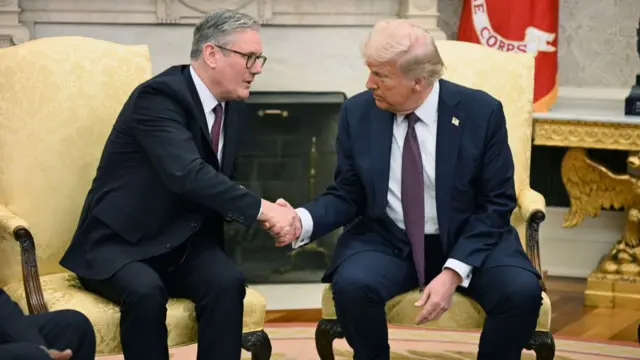 Image source, Getty Images
Image source, Getty ImagesKeir Starmer and Donald Trump shook hands at the White House in February, shortly before agreeing a UK-US trade deal on tariffs in May
So far the UK government is keeping its head down on this latest development in the Trump tariff drama - their standard strategy throughout the president’s first few turbulent months in the White House.
“Just don’t get involved,” is the regular refrain from one senior figure in No 10.
Keir Starmer already succeeded in getting the UK relief from some US tariffs when he signed a deal with Trump earlier this month to reduce import taxes on a set number of British cars and allow some steel and aluminium into the country tariff-free.
However, that deal has yet to be implemented and car manufacturers and steel companies are keen to get clarity on when they will be able to benefit from the agreement.
The UK government says: "We are working to ensure that businesses can benefit from the deal as quickly as possible and will confirm next steps in due course.”
